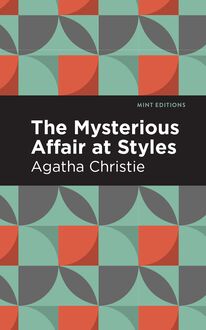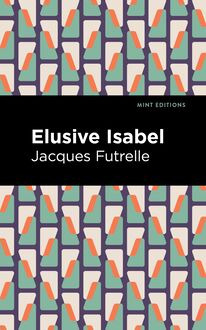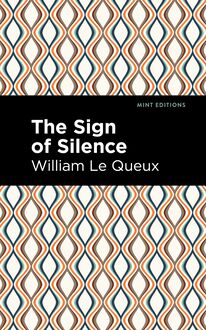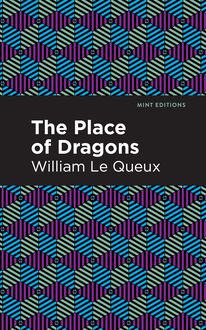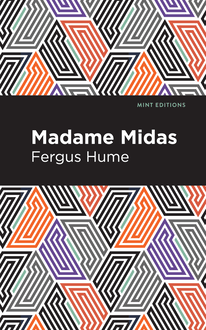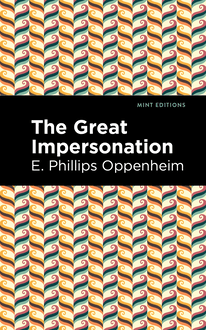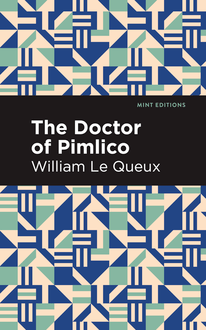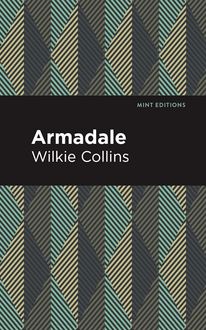-
 Univers
Univers
-
 Ebooks
Ebooks
-
 Livres audio
Livres audio
-
 Presse
Presse
-
 Podcasts
Podcasts
-
 BD
BD
-
 Documents
Documents
-
- Cours
- Révisions
- Ressources pédagogiques
- Sciences de l’éducation
- Manuels scolaires
- Langues
- Travaux de classe
- Annales de BEP
- Etudes supérieures
- Maternelle et primaire
- Fiches de lecture
- Orientation scolaire
- Méthodologie
- Corrigés de devoir
- Annales d’examens et concours
- Annales du bac
- Annales du brevet
- Rapports de stage
La lecture à portée de main
Vous pourrez modifier la taille du texte de cet ouvrage
Découvre YouScribe en t'inscrivant gratuitement
Je m'inscrisDécouvre YouScribe en t'inscrivant gratuitement
Je m'inscrisEn savoir plus
Vous pourrez modifier la taille du texte de cet ouvrage
En savoir plus

Description
The Man With the Black Feather (1909) is a novel by French writer Gaston Leroux. Originally a journalist, Leroux turned to fiction after reading the works of Arthur Conan Doyle and Edgar Allan Poe. His most famous work, The Phantom of the Opera, has become legendary through several adaptations for film, theater, and television, including Andrew Lloyd Webber’s celebrated 1886 Broadway musical of the same name.
Walking into his office one morning, a journalist discovers a stranger waiting there for him. Holding an ornate wooden box, he reveals himself to be the executor of M. Théophraste Longuet, a deceased manufacturer and a former acquaintance of the journalist. Suspicious at first, the journalist accepts the box, opening it to reveal the voluminous memoirs of Longuet. Within their pages, presumably unread by anyone else, Longuet describes his discovery of documents revealing that he is, in fact, the reincarnation of infamous French highwayman Louis Dominique Cartouche, a vigilante figure who haunted the roads of 18th century France in order to steal from the rich and give their wealth to the poor. Skeptical, the journalist reads the memoirs, which lead him to the legendary “Treasure of Cartouche,” virtually ensuring the accuracy of Longuet’s claims. Assured of their worth to the public, the journalist convinces his editors to release their discovery to the world. The Man With the Black Feather, which is also known by the title The Double Life, is a mystery novel by Gaston Leroux, one of the leading French detective writers of his generation. Like much of Leroux’s work, the novel is partly based on historical events—Cartouche was an actual figure whose campaign of thievery and charity came to an abrupt end with his brutal public execution in 1721.
With a beautifully designed cover and professionally typeset manuscript, this edition of Gaston Leroux’s The Man With the Black Feather is a classic of French literature reimagined for modern readers.
Sujets
Informations
| Publié par | Mint Editions |
| Date de parution | 23 février 2021 |
| Nombre de lectures | 0 |
| EAN13 | 9781513276960 |
| Langue | English |
Informations légales : prix de location à la page 0,0500€. Cette information est donnée uniquement à titre indicatif conformément à la législation en vigueur.
Extrait
The Man With the Black Feather
Gaston Leroux
The Man With the Black Feather was first published in 1903.
This edition published by Mint Editions 2021.
ISBN 9781513271965 | E-ISBN 9781513276960
Published by Mint Editions®
minteditionbooks.com
Publishing Director: Jennifer Newens
Design & Production: Rachel Lopez Metzger
Project Manager: Micaela Clark
Translated by Edgar Jepson
Typesetting: Westchester Publishing Services
C ONTENTS I. M. T HEOPHRASTUS L ONGUET D ESIRES TO I MPROVE H IS M IND AND V ISITS H ISTORICAL M ONUMENTS II. T HE S CRAP OF P APER III. T HEOPHRASTUS L ONGUET B URSTS INTO S ONG IV. A DOLPHE L ECAMUS IS F LABBERGASTED B UT F RANK V. T HEOPHRASTUS S HOWS THE B LACK F EATHER VI. T HE P ORTRAIT VII. T HE Y OUNG C ARTOUCHE VIII. T HE W AX M ASK IX. S TRANGE P OSITION OF A L ITTLE V IOLET C AT X. T HE E XPLANATION OF THE S TRANGE A TTITUDE OF A L ITTLE V IOLET C AT XI. T HEOPHRASTUS M AINTAINS THAT H E DID NOT D IE ON THE P LACE DE G RÈVE XII. T HE H OUSE OF S TRANGE W ORDS XIII. T HE C URE THAT M ISSED XIV. T HE O PERATION B EGINS XV. T HE O PERATION E NDS XVI. T HE D RAWBACKS OF P SYCHIC S URGERY XVII. T HEOPHRASTUS B EGINS TO T AKE AN I NTEREST IN T HINGS XVIII. T HE E VENING P APER XIX. T HE S TORY OF THE C ALF XX. T HE S TRANGE B EHAVIOUR OF AN E XPRESS T RAIN XXI. T HE E ARLESS M AN WITH H IS H EAD O UT OF THE W INDOW XXII. I N W HICH THE C ATASTROPHE W HICH A PPEARS ON THE P OINT OF B EING E XPLAINED , G ROWS Y ET M ORE I NEXPLICABLE XXIII. T HE M ELODIOUS B RICKLAYER XXIV. T HE S OLUTION IN THE C ATACOMBS XXV. M. M IFROID T AKES THE L EAD XXVI. M. L ONGUET F ISHES IN THE C ATACOMBS XXVII. M. M IFROID P ARTS FROM T HEOPHRASTUS XXVIII. T HEOPHRASTUS G OES INTO E TERNAL E XILE
I
M. T HEOPHRASTUS L ONGUET D ESIRES TO I MPROVE H IS M IND AND V ISITS H ISTORICAL M ONUMENTS
M. Theophrastus Longuet was not alone when he rang the bell of that old-time palace prison, the Conciergerie: he was accompanied by his wife Marceline, a very pretty woman, uncommonly fair for a Frenchwoman, of an admirable figure, and by M. Adolphe Lecamus, his best friend.
The door, pierced by a small barred peephole, turned heavily on its hinges, as a prison door should; the warder, who acts as guide to the prison, dangling a bunch of great old-fashioned keys in his hand, surveyed the party with official gloom, and asked Theophrastus for his permit. Theophrastus had procured it that very morning at the Prefecture of Police; he held it out with the air of a citizen assured of his rights, and regarded his friend Adolphe with a look of triumph.
He admired his friend almost as much as he admired his wife. Not that Adolphe was exactly a handsome man; but he wore an air of force and vigour; and there was nothing in the world which Theophrastus, the timidest man in Paris, rated more highly than force and vigour. That broad and bulging brow (whereas his own was narrow and high), those level and thick eyebrows, for the most part raised a trifle to express contempt of others and self-confidence, that piercing glance (whereas his own pale-blue eyes blinked behind the spectacles of the short-sighted), that big nose, haughtily arched, those lips surmounted by a brown, curving moustache, that strong, square chin; in a word, all that virile antithesis to his own grotesque, flabby-cheeked face, was the perpetual object of his silent admiration. Besides, Adolphe had been Post-Office Inspector in Tunis: he had “crossed the sea.”
Theophrastus had only crossed the river Seine. No one can pretend that that is a real crossing.
The guide set the party in motion; then he said:
“You are French?”
Theophrastus stopped short in the middle of the court.
“Do we look like Germans?” he said with a confident smile, for he was quite sure that he was French.
“It’s the first time I ever remember French people coming to visit the Conciergerie. As a rule French people don’t visit anything,” said the guide with his air of official gloom; and he went on.
“It is wrong of them. The monuments of the Past are the Book of History,” said Theophrastus sententiously; and he stopped short to look proudly at his wife and Adolphe, for he found the saying fine.
They were not listening to him; and as he followed the guide, he went on in a confidential tone, “I am an old Parisian myself; and if I have waited till to-day to visit the monuments of the Past, it was because my business—I was a manufacturer of rubber stamps right up to last week—did not give me the leisure to do it till the hour I retired from it. That hour has struck; and I am going to improve my mind.” And with an air of decision he struck the time-old pavement with the ferule of his green umbrella.
They went through a little door and a large wicket, down some steps, and found themselves in the Guard-room.
They were silent, abandoning themselves entirely to their reflections. They were doing all they could to induce these old walls, which recalled so prodigious a history, to leave a lasting impression on their minds. They were not insensible brutes. While the guide conducted them over C æ sar’s tower, or Silver tower, or Bon Bec tower, they told themselves vaguely that for more than a thousand years there had been in them illustrious prisoners whose very names they had forgotten. Marceline thought of Marie Antoinette, the Princess Elizabeth, and the little Dauphin, and also of the waxwork guards who watch over the Royal Family in museums. In spirit therefore she was in the Temple while she was in body visiting the Conciergerie. But she did not suspect this; so she was quite happy.
As they descended the Silver tower, where the only relict of the Middle Ages they had found was an old gentleman on a stool in front of a roll-top desk, classifying the documents relating to political prisoners under the Third Republic, they came once more into the Guard-room on their way to Bon Bec tower.
Theophrastus, who took a pride in showing himself well-informed, said to the guide: “Wasn’t it here that the Girondins had their last meal? You might show us exactly where the table was and where Camille Desmoulins sat. I always look upon Camille Desmoulins as a personal friend of mine.”
“So do I,” said Marceline with a somewhat superior air.
Adolphe jeered at them. He asserted that Camille Desmoulins was not a Girondin. Theophrastus was annoyed, and so was Marceline. When Adolphe went on to assert that Camille Desmoulins was a Cordelier, a friend of Danton, and one of the instigators of the September massacres, she denied it.
“He was nothing of the kind,” she said firmly. “If he had been, Lucie would never have married him.”
Adolphe did not press the point, but when they came into the Torture-chamber in Bon Bec tower, he pretended to be immensely interested by the labels on the drawers round the walls, on which were printed “Hops,” “Cinnamon,” “Senna.”
“This was the Torture-chamber; they have turned it into a dispensary,” said the guide in gruff explanation.
“They have done right. It is more humane,” said Theophrastus sententiously.
“No doubt; but it’s very much less impressive,” said Adolphe coldly.
At once Marceline agreed with him…
One was not impressed at all… They had been expecting something very different… This was not at all what they had looked for.
But when they came on to the Clock platform, their feelings underwent a change. The formidable aspect of those feudal towers, the last relics of the old Frankish monarchy, troubles for awhile the spirit of even the most ignorant. This thousand-year-old prison has witnessed so many magnificent death-agonies and hidden such distant and such legendary despairs that it seems that one only has to penetrate its depths to find sitting in some obscure corner, damp and fatal, the tragic history of Paris, as immortal as those walls. That is why, with a little plaster, flooring, and paint, they have made there the office of the Director of the Conciergerie and that of the Recorder; they have put the ink-spiller in the place once occupied by the executioner. It is, as Theophrastus says, more humane.
None the less, since, as Adolphe affirmed, it is less impressive, that visit of the 16th of last June threatened to leave on the minds of the three friends nothing but the passing memory of a complete disillusion when there happened an incident so unheard of and so curiously fantastic that I considered it absolutely necessary, after reading Theophrastus Longuet’s account of it in his memoirs, to go to the Conciergerie and cross-examine the guide himself.
I found him a stolid fellow, officially gloomy, but with his memory of the events of Theophrastus’ visit perfectly clear.
At my questions he lost his air of gloom, and said with some animation, “Everything was going quite as usual, sir; and I had just shown the two gentlemen and the lady the kitchens of St. Louis—where we keep the whitewash. We were on our way to the cell of Marie Antoinette, which is now a little chapel. The figure of Christ before which she must have prayed is now in the Director’s office—”
“Yes, yes; let’s get to the facts!” I interrupted.
“We’re just coming to them. I was telling the gentleman with the green umbrella that we had been compelled to put the Queen’s armchair in the Director’s office because the English were carrying away all the stuffing of it in their purses—”
“Oh, cut out the English!” I said with some impatience.
He looked at me with an injured air and went on: “But I must tell you what I was saying to the gentleman with the green umbrella when he interrupted me in such a strange tone that the other gentleman and the lady cried out together, ‘What’s the matter, Theophrastus? I never heard you speak like that before! I shouldn’t have recognised your voice! ’”
“Ah! and what was he saying to you?”
“We had come just to the end of Paris Street—you know the passage we call Paris Street at the Conciergerie?”
“Yes, yes:
-
 Univers
Univers
-
 Ebooks
Ebooks
-
 Livres audio
Livres audio
-
 Presse
Presse
-
 Podcasts
Podcasts
-
 BD
BD
-
 Documents
Documents
-
Jeunesse
-
Littérature
-
Ressources professionnelles
-
Santé et bien-être
-
Savoirs
-
Education
-
Loisirs et hobbies
-
Art, musique et cinéma
-
Actualité et débat de société
-
Jeunesse
-
Littérature
-
Ressources professionnelles
-
Santé et bien-être
-
Savoirs
-
Education
-
Loisirs et hobbies
-
Art, musique et cinéma
-
Actualité et débat de société
-
Actualités
-
Lifestyle
-
Presse jeunesse
-
Presse professionnelle
-
Pratique
-
Presse sportive
-
Presse internationale
-
Culture & Médias
-
Action et Aventures
-
Science-fiction et Fantasy
-
Société
-
Jeunesse
-
Littérature
-
Ressources professionnelles
-
Santé et bien-être
-
Savoirs
-
Education
-
Loisirs et hobbies
-
Art, musique et cinéma
-
Actualité et débat de société
- Cours
- Révisions
- Ressources pédagogiques
- Sciences de l’éducation
- Manuels scolaires
- Langues
- Travaux de classe
- Annales de BEP
- Etudes supérieures
- Maternelle et primaire
- Fiches de lecture
- Orientation scolaire
- Méthodologie
- Corrigés de devoir
- Annales d’examens et concours
- Annales du bac
- Annales du brevet
- Rapports de stage


